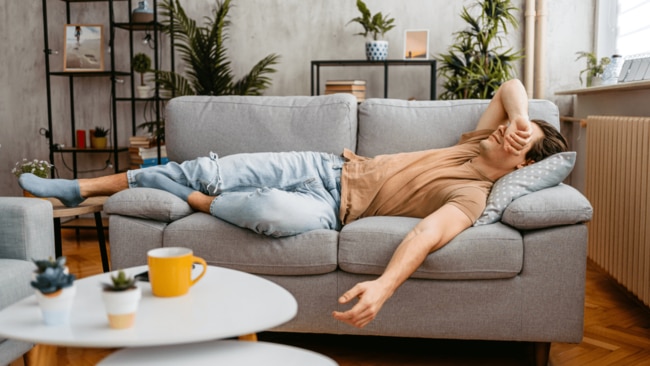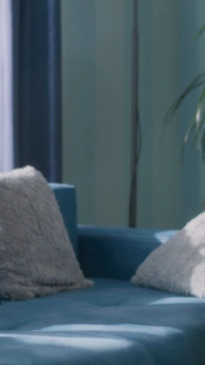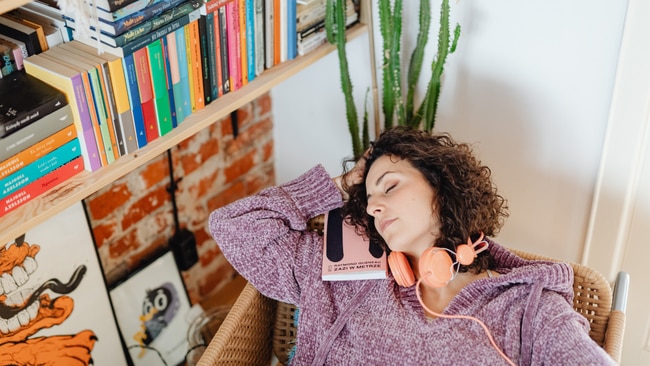Struggle to go to bed? You might be a 'sleep procrastinator'
Move slumber to the top of your to-do list

Lifestyle
Don't miss out on the headlines from Lifestyle. Followed categories will be added to My News.
Choosing to clock up a few more hours on the couch instead of between the sheets could be doing more damage than just affecting your productivity, experts say.
You’ve had a big day. You’re tired. your body is begging you to head to bed, but instead, you pick up your phone, watch just one more episode or pour another glass of wine. Sound familiar?
If it does, you’re not alone - Australia is fast becoming a nation of overtired sleep procrastinators.
We live in an age where something is vying for our attention, at every hour of the day and night. We have limitless digital entertainment streaming and because many of us have worked remotely, work has seeped into every part of our lives and we’re never quite switched off.

Like what you see? Sign up to our bodyandsoul.com.au newsletter for more stories like this.
Time, our greatest enemy, counts down at an increasing pace and so we cram our waking hours with all of the things. But our list of to-dos never gets completely done, and there’s an even greater list of want-to-dos always waiting in the wings.
So, when there isn’t enough time in the day, guess what gets nudged? That’s right, our shut-eye. As a nation, we’re staying up later and later and it’s doing us more harm than good.
We’re making sleep less important, because there’s always something else to do, and losing the opportunity to recharge our minds and bodies and wake up to all the promise that a new day should give.
Worse still, sleep can be a matter of life or death. Our national road and workplace safety statistics are a deadly reminder of the importance of sleep and the impact of poor sleep on fatigue and inattention.
Unless you’re a narcoleptic, going to sleep is a conscious decision. You won’t fall asleep mid-conversation or nod off while you’re out walking the dog, but there are recommended standard hours of sleep and those hours exist for a reason.

For most adults optimum sleep lands somewhere between seven and nine hours. Being able to choose when we go to sleep is truly a marvel, but it’s also perplexing.
We are the only species on earth who deliberately shortens the time we give to sleep. And if we continue this reductionist approach to something that’s so vitally important to our health, we could reach a tipping point.
And it won’t be pretty. We’re talking burnout, making serious mistakes or decisions at work, driving dangerously on the roads, and even full relationship breakdowns.
As human beings, we get to choose what time we wander into our bedroom, climb between the sheets and switch out the lights. Sounds simple enough doesn’t it? But unfortunately, it’s not that easy and we have to work harder to make it a priority.
First, we need to work out how much sleep we need to feel refreshed and operate at optimum levels the next day. This isn’t easy when you have small children or you’re working shift or FIFO work.
But if you can prioritise your sleep, try going to bed a half hour earlier than you normally would and sans phone for two weeks and see how much better you feel at the end of it.

Try these wind-down tips to help ease you into relaxed (and earlier to bed) mode:
Brush your teeth after dinner
You’ll be less tempted to have another glass of wine or make a snack
Dim the lights
Schedule a gentle prompt 30 minutes before you need to be asleep. And watch out for the melatonin wave. When you feel sleepy, surf that wave into slumberland.
Don’t take devices into the bedroom
Leave them on the kitchen bench and set emergency numbers into your personal profile so you’ll always be alerted to emergencies.
Make a sanctuary
Don’t underestimate the allure of the right duvet, pillows and soft bed sheets to fall into.
De-clutter your bedroom
Make sure your bedroom isn’t scattered with work or projects, once you’re there, everything else should be shut out.

Lifestyle factors such as family, social commitments and work can often convince us to run freestyle with our sleep schedule, and our preference to love the mornings (early birds) or evenings (night owls) is also largely influenced by genetics.
But we’re putting our wellbeing, health and safety on the line if we don’t address the way we displace our sleep with busyness and reassess what time we switch the lights out.
There is an incredible genius to sleep, but also a great responsibility - the responsibility to go to bed when we know we should.
So put down the bottle of wine, turn off that third episode, put your phone away, and promise yourself you’ll stop procrastinating when it comes to sleep - your life might just depend on it.
Amanda Slinger is a sleep expert and the founder of SleepSpot, a digital sleep education program that supports people with the knowledge, tools and skills to make informed decisions about their rest, sleep and health.
More Coverage
Originally published as Struggle to go to bed? You might be a 'sleep procrastinator'




